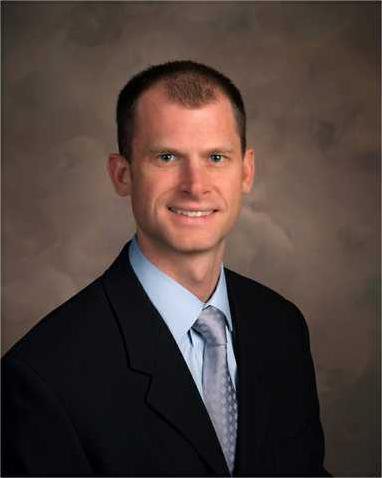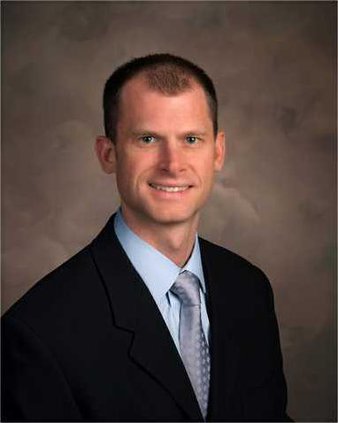To say that Dr. Richard Markiewicz is animated when he talks about the procedures he performs would be an understatement. It is obvious he is eager to explain his minimally invasive procedures because they are the “wave of the future.”
Dr. Markiewicz is an interventional cardiologist and endovascular specialist who has been seeing patients for the last few months in the Specialty Clinic at St. Rose Ambulatory & Surgery Center. His home base is Hays Medical Center.
“We are offering a few unique services for patients in this area,” he said. “They are much less invasive than surgical procedures and patients are reporting good results.”
While the procedures are performed at Hays, other contacts with the physician are close to home. Initial consultations and follow-up appointments are at St. Rose.
“They should have to travel only once,” Dr. Markiewicz said. “This would be for the procedure in the catheterization lab where we perform these techniques.”
One technique is radial artery catheterization. During most traditional cardiac cath procedures, the doctor uses the femoral artery in the leg as the entry point for the catheter tube. This tube is guided through arteries to the heart.
“Instead of going through the leg, I go through the radial artery in the wrist,” Dr. Markiewicz said. “The femoral artery is such a big artery and patients are laid up with sandbags on their leg after the procedure. With the wrist technique, they can move around immediately.
“You wear a wrist band when it is over and look like you have been to the gym,” he added. “You are not flat on your back with a hole in your leg.
“Only about 8 percent of physicians use this wrist technique,” Dr. Markiewicz added. “But it will be the way of the world – soon I hope.”
Another specialty is endovascular treatment of peripheral artery disease (PAD), which leads to a narrowing of the blood vessels.
“This is an under-recognized problem,” Dr. Markiewicz said. “As we get older, we get blockages in the leg arteries. We can now treat this with minimally invasive techniques.”
He participates in PAD research and wrote an article that has been accepted for publication in Vascular Disease Management, a peer-reviewed journal.
A third specialty is carotid artery stenting. A slender tube (stent) is inserted in the carotid, which runs from the neck to the brain. The stent expands the artery to increase blood flow.
“Some patients are not candidates for surgery for one reason or another,” Dr. Markiewicz said. “But in many cases, the stenting will work.”
In addition, he noted, minimally invasive techniques result in fewer complications and much less recovery time. They are also less expensive and outcomes are often better.
The cardiologist, who visits St. Rose once or twice a month on Thursdays, sees about 30 patients each time.
“This is an absolutely beautiful facility,” Dr. Markiewicz said. “I collaborate with the Great Bend Internists (GBI) physicians who make up a great group of primary-care doctors.”
GBI is part of the St. Rose family.
Dr. Markiewicz graduated from Texas A & M University and earned his medical degree from Southern Illinois School of Medicine. He has held fellowships in interventional cardiology at East Carolina University Heart Institute and in cardiology at Mid-America Heart Institute at the University of Missouri-Kansas City.
The physician also completed residencies in internal medicine and emergency medicine at the University of Arizona and Northwestern University, respectively.
To reach Dr. Markiewicz, contact the St. Rose Specialty Clinic by calling 620-786-6515.
Dr. Markiewicz brings new procedures to St. Rose





